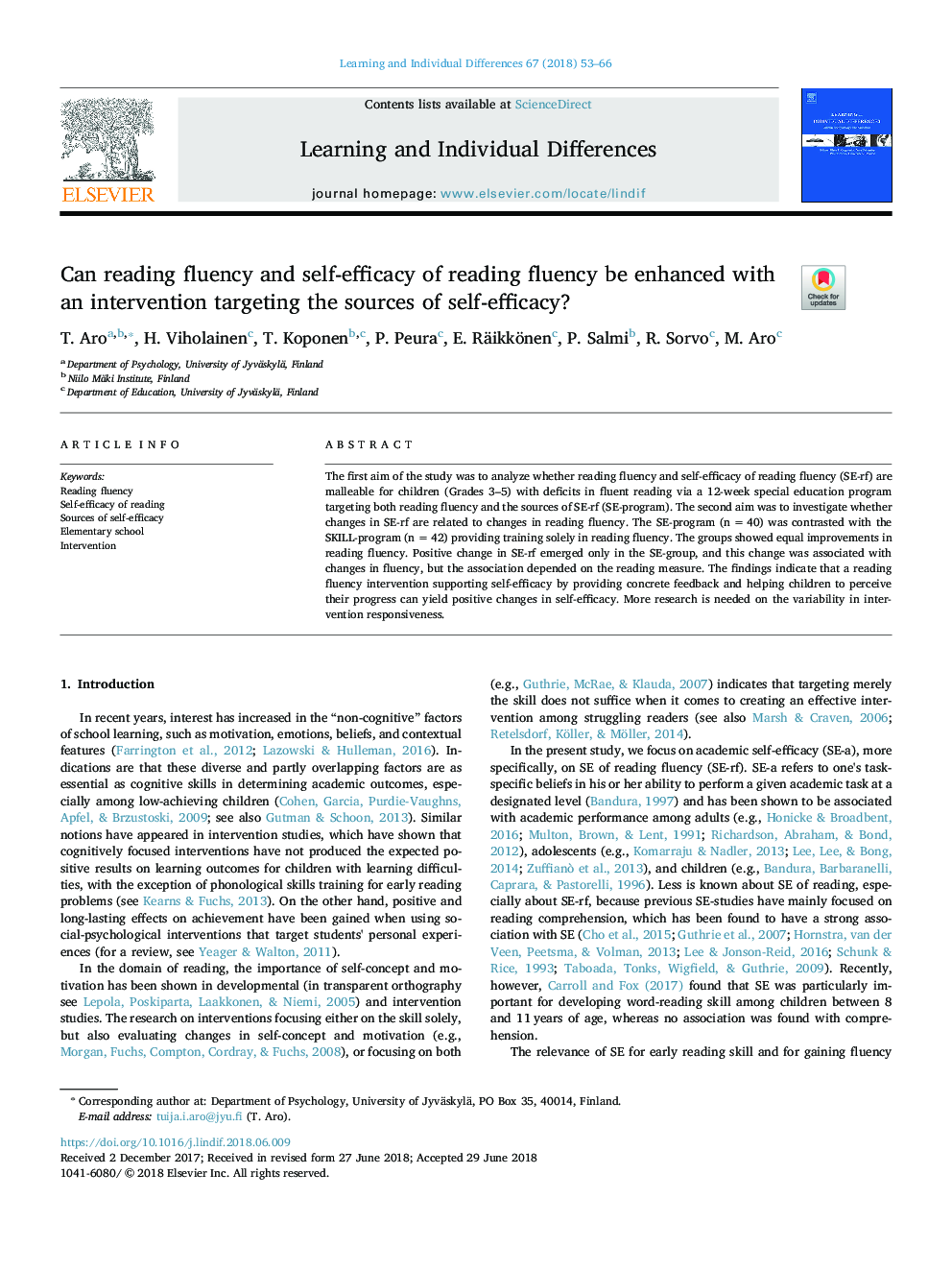| Article ID | Journal | Published Year | Pages | File Type |
|---|---|---|---|---|
| 6844247 | Learning and Individual Differences | 2018 | 14 Pages |
Abstract
The first aim of the study was to analyze whether reading fluency and self-efficacy of reading fluency (SE-rf) are malleable for children (Grades 3-5) with deficits in fluent reading via a 12-week special education program targeting both reading fluency and the sources of SE-rf (SE-program). The second aim was to investigate whether changes in SE-rf are related to changes in reading fluency. The SE-program (nâ¯=â¯40) was contrasted with the SKILL-program (nâ¯=â¯42) providing training solely in reading fluency. The groups showed equal improvements in reading fluency. Positive change in SE-rf emerged only in the SE-group, and this change was associated with changes in fluency, but the association depended on the reading measure. The findings indicate that a reading fluency intervention supporting self-efficacy by providing concrete feedback and helping children to perceive their progress can yield positive changes in self-efficacy. More research is needed on the variability in intervention responsiveness.
Related Topics
Social Sciences and Humanities
Psychology
Developmental and Educational Psychology
Authors
T. Aro, H. Viholainen, T. Koponen, P. Peura, E. Räikkönen, P. Salmi, R. Sorvo, M. Aro,
